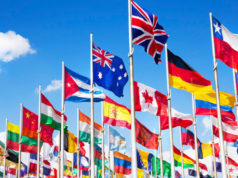Younas Achakzai
The struggle for economic stability has long been a major challenge for Pakistan, leading many to believe that the country is on the brink of bankruptcy. However, there are many indications that Pakistan is indeed capable of becoming a new economic power and transforming its fortunes for the better.
One of the most significant factors contributing to this outlook is Pakistan’s strategic location. As a gateway to Central and South Asia, Pakistan has the potential to become a vital trade hub in the region. The country’s geography also lends itself well to energy infrastructure development, specifically in renewable energy sources such as solar power.
Another critical factor to consider is Pakistan’s human capital. With its large and young population, there is a vast pool of talent and energy that can be harnessed to drive the country’s economic development. The government has already initiated several programs to educate and equip the workforce with relevant skills to meet the changing needs of the industry.
Furthermore, Pakistan recently witnessed a significant increase in foreign direct investment in various sectors, including technology, finance, and infrastructure development. This growth is a clear indication that investors recognize the potential of the Pakistani market despite the economic challenges it currently faces.
The Pakistani Government has also demonstrated a renewed commitment to reforming the economy and attracting international investment. Measures such as the China-Pakistan Economic Corridor and the introduction of Special Economic Zones are expected to provide a significant boost to Pakistan’s economy.
Overall, there appears to be light at the end of the tunnel for Pakistan’s economic future. The country faces significant challenges, but there are also several opportunities to strengthen its economic foundations and achieve sustainable growth. The right policies and a shared vision among all stakeholders can lead to a prosperous and inclusive economy for the people of Pakistan. With the right investments and changes in business cultures, Pakistan has all the necessary ingredients to become a new economic power in the region. In addition to this, China-Pakistan Economic Corridor (CPEC) has provided a glimmer of hope for the country’s economic future.
CPEC is a project that aims to connect the Pakistani port of Gwadar to China’s northwestern region of Xinjiang via a network of highways, railways, and pipelines. The project is expected to bring in billions of dollars in investment and create thousands of jobs for Pakistanis.
While some critics argue that CPEC will only increase Pakistan’s dependence on China, others believe that it has the potential to transform the country’s economy. The project includes investments in energy, infrastructure, and industrial parks, which will help to boost Pakistan’s manufacturing sector and reduce its reliance on imports.
Additionally, CPEC is expected to improve the country’s transportation infrastructure, making it easier and more cost-effective for businesses to move goods around the country. This, in turn, will help to reduce transportation costs and improve the competitiveness of Pakistani businesses in the global market.
Furthermore, CPEC has the potential to create new business opportunities for Pakistani entrepreneurs. With the development of new industries and the expansion of existing ones, there will be a need for new businesses to provide support services, such as logistics and transportation.
Overall, CPEC has the potential to kickstart a new economic era for Pakistan. While the project is not without its risks, such as the potential for debt overload and environmental concerns, the benefits could far outweigh the costs. With careful planning and management, CPEC could be the key to unlocking Pakistan’s economic potential and putting the country on a path toward sustained growth and development.
The Writer is an Advocate and advisor to CEO of Assad Logistics PVT LTD.
Disclaimer: Views expressed in this article are those of the writer and Balochistan Voices does not necessarily agree with them.
Share your comments!








